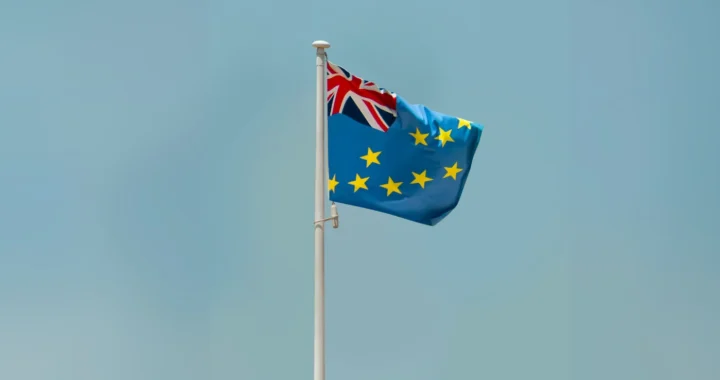The Global Risks Report 2025 Highlights an Increasingly Fragmented World

Photo: Freepik.
Living in a time of multiple crises means we must face significant risks and challenges in almost every aspect of our lives. Between conflict escalations and rampant misinformation, the Global Risks Report 2025 by the World Economic Forum (WEF) unveils experts’ insight into current global risks and future outlook.
2025 global risks
The Global Risks Report 2025 presents insights from over 900 experts worldwide, based on the Global Risks Perception Survey 2024-2025 conducted between September and October 2024. It also draws on the WEF’s Executive Opinion Survey to understand local concerns and priorities, as well as qualitative insights from 96 experts from diverse backgrounds.
Overall, 23% of the survey respondents voted for state-based armed conflict as the top risk for 2025. This risk, which had ranked #8 the previous year, highlighted the widespread impacts of wars, conflicts, and occupations worldwide, including in Ukraine, Palestine, and Sudan.
This risk drives and is driven by multiple factors listed in the report’s top 10 risks. For instance, conflicts are the main drivers of global economic volatility, which placed geoeconomic confrontation at #3. Meanwhile, the list also features many interconnected social risks, including societal polarization (#5), erosion of human rights and freedom (#9), and inequality (#10), which are among the factors that can aggravate conflicts.
On the other hand, 14% of the survey respondents chose extreme weather events as another key risk for 2025. As global temperatures continue to rise and decarbonization progress remains insufficient, the climate crisis that once seemed far away has become an urgent reality.
Cynicism about the future
These outlooks indicate a growing cynicism about the future. A good 31% of the respondents anticipated turbulence in 2027, expecting upheavals and elevated global risks to occur. Meanwhile, 5% thought the world would be stormy, with looming global catastrophic risks. Both categories showed increases from the previous year’s numbers.
Looking ahead, misinformation and disinformation are expected to top the risk list within the two-year period. The proliferation of artificial intelligence (AI) has made it more difficult to distinguish between real and false information, which can exacerbate societal polarization. Similarly, experts have expressed concerns over cybercrime activities like money laundering and surveillance due to technological advancements.
Furthermore, the geopolitical recession will likely increase in the next two years due to uncertainties and potential conflict escalation. The seemingly insufficient effort from international organizations in conflict response and resolution can fuel unilateral movements, eventually diminishing global cooperation toward common goals.
Urgency for collaboration and cooperation
The Global Risks Report 2025 marked the report’s 20th edition. Over the course of 20 years, environmental risks have consistently placed at the top in the 10-year risk outlooks. These risks range from extreme weather events to natural resource shortages to pollution.
Concerns about conflicts have also been floating in decision-makers’ minds over the years, which unfortunately have become a reality recently. Increasing social fragmentation due to inequality, lack of economic opportunity, and societal polarization also pose a long-term risk. Meanwhile, economic and technological risks are to watch out for.
Ultimately, countries and global leaders must find a way to address the increasingly complex risks in the following years. While strengthening domestic policies and infrastructures across sectors is crucial, the report highlights the urgent need for collaboration and cooperation between countries.
“Leaders across the public and private sectors, civil society, international organizations and academia must seize the baton to work openly and constructively with each other. By deepening honest dialogue and acting urgently to mitigate the risks that lie ahead, we can rebuild trust and together create stronger, more resilient economies and societies,” wrote Saadia Zahidi, the Managing Director at the World Economic Forum.
Read the full report here.

Subscribe to Green Network Asia
Strengthen your personal and professional development with cross-sectoral insights on sustainability-related issues and sustainable development across the Asia Pacific and beyond.

Kresentia Madina
Madina is the Assistant Manager for Digital Publications at Green Network Asia. She graduated from Universitas Indonesia with a bachelor's degree in English Literature. She has three years of professional experience working on GNA international digital publications, programs, and partnerships particularly on social and cultural issues.


 How the Manosphere Is Reshaping Young Men’s Identity
How the Manosphere Is Reshaping Young Men’s Identity  How Plant the Emirates Aims to Support Food Self-Sufficiency in the UAE
How Plant the Emirates Aims to Support Food Self-Sufficiency in the UAE  GRI’s Updated Sustainability Standards on Climate Change and Energy
GRI’s Updated Sustainability Standards on Climate Change and Energy  Looking into Biochar as a Bioremediation Agent
Looking into Biochar as a Bioremediation Agent  Australian Climate Visa for Citizens of Tuvalu: Showcasing cross-border partnership in light of the climate crisis
Australian Climate Visa for Citizens of Tuvalu: Showcasing cross-border partnership in light of the climate crisis  Nickel Mining in Raja Ampat and the Widespread Cost of Natural Resource Exploitation
Nickel Mining in Raja Ampat and the Widespread Cost of Natural Resource Exploitation